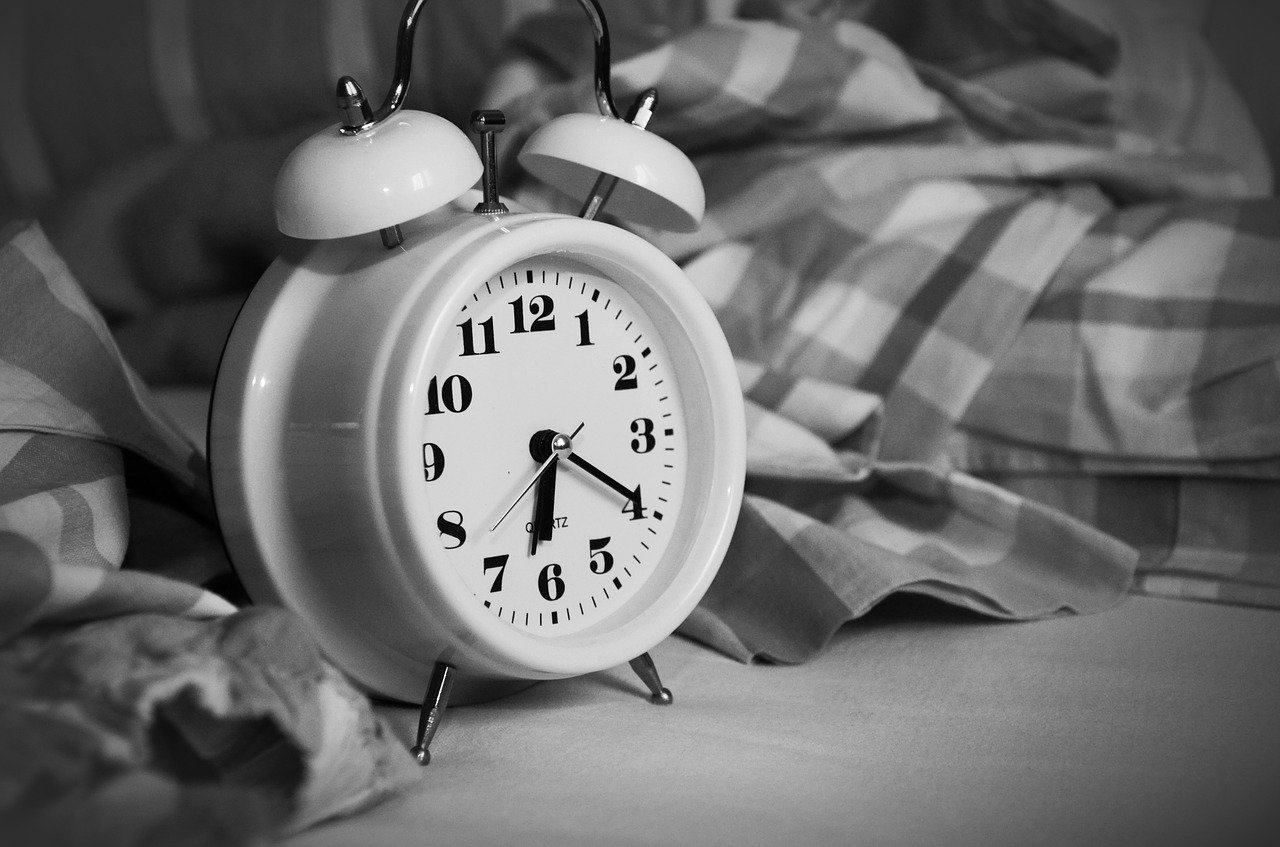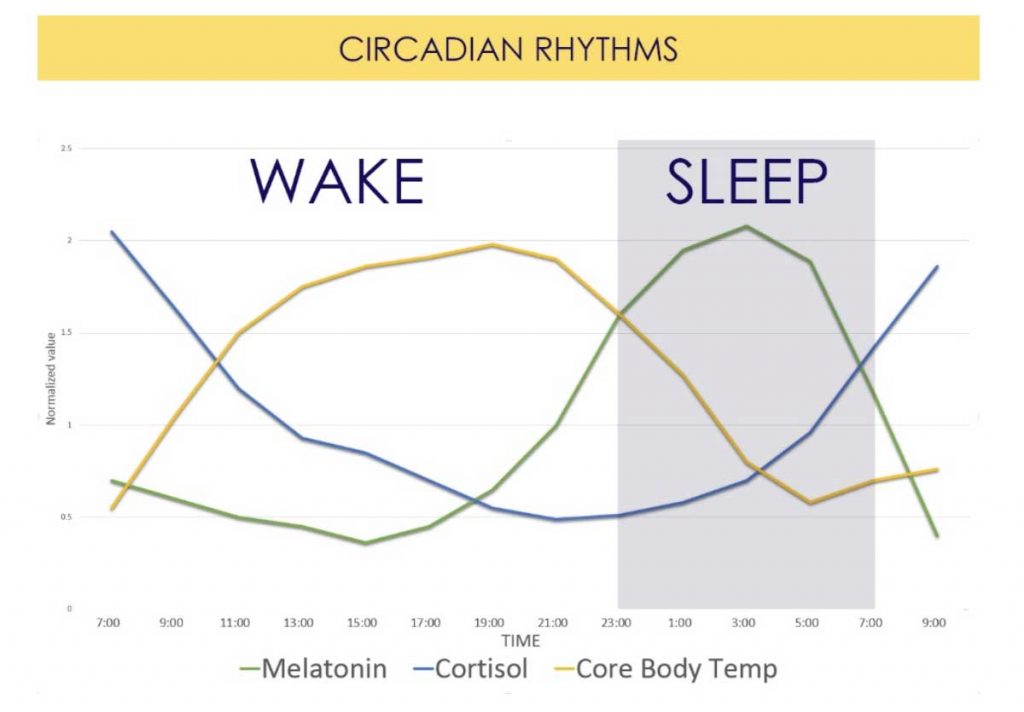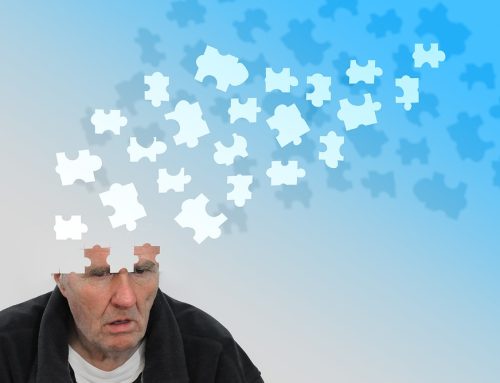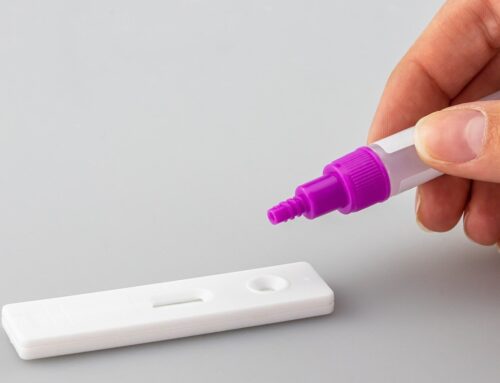We often hear the term, circadian rhythm, to describe the daily cycle of sleep and wakefulness, but less often do we hear discussion about the roles of cortisol and melatonin within this circadian cycle and the fundamental role these hormones play in maintaining our energy levels, balancing our mood and reducing anxiety.
A healthy circadian cycle sees cortisol and melatonin in an antagonistic relationship. Whenever cortisol is high, melatonin is low, and vice-versa. In a healthy circadian cycle, cortisol is at its highest shortly after waking, and gradually declines throughout the day. This is the hormone that gets you up out of bed and keeps you alert during the day. Conversely, melatonin, which is the hormone that promotes and maintains sleep, is low during the daylight hours, begins to rise in the evening, and reaches a peak in the middle of the night.
The delicate balance between these two hormones can be disrupted by many factors, the most common of which are night-time light and stress.
Melatonin is produced in the pineal gland, located in the brain, in response to darkness. As night falls, decreased light is detected by the eye, which communicates with the brain via the optic nerve, triggering melatonin release into the bloodstream. The body prepares for sleep by relaxing and lowering core body temperature. Our modern night-time lifestyle of lighting our environment, watching TV and in particular, viewing back-lit devices that emit blue light, all inhibit secretion of this vital hormone and negatively affect sleep.
Limiting exposure to night-time blue light becomes more important as we mature, as melatonin production naturally declines with age. By age 70, night-time melatonin levels are reduced by approximately 75%, compared to those in young adults.
The other partner in this marriage is cortisol, commonly referred to as the stress hormone. Cortisol is secreted by the adrenal glands and at normal levels helps with alertness and wakefulness during the day, proper immune function, glucose metabolism, blood pressure control and salt /fluid balance. Over time, however, elevated cortisol can have drastic effects on the body, not the least of which is circadian misalignment, where the normal ebb and flow of cortisol and melatonin is disrupted, resulting in night-time insomnia and lethargy during the day. Both physical and emotional stress can lead to increased and/or continued cortisol secretion long after normal secretion should have decreased. Given the daily relationship between cortisol and melatonin, perpetually elevated cortisol will negatively impact melatonin synthesis and throw the circadian cycle into disarray.
How to address the imbalance?
There is only so much we can do to remove stressors in our lives, so the key to this puzzle is to offset the impacts of stress rather than remove the source. Undertaking exercise, meditation, yoga, enjoying the outdoors, reading or anything that brings calm and pleasure can help to address chronically elevated cortisol. Using amber lighting in the home or amber filters on smartphones and computers can minimise the inhibitory effects of blue light on melatonin synthesis. Herbal therapies, such as those listed below can help to promote relaxation and reduce anxiety.
Passionflower: Available over the counter as a tea or supplement, Passionflower has been found to contain naturally occurring GABA, the primary relaxing neurotransmitter in the brain.
Lavender: Available over the counter as an essential oil or tea, Lavender can be ingested or inhaled to improve sleep quality and relieve anxiety.
Ziziphus: Available in many over the counter sleep supplements, Ziziphus promotes relaxation and sleep quality.










